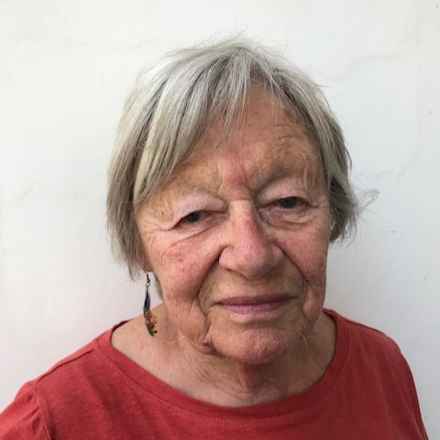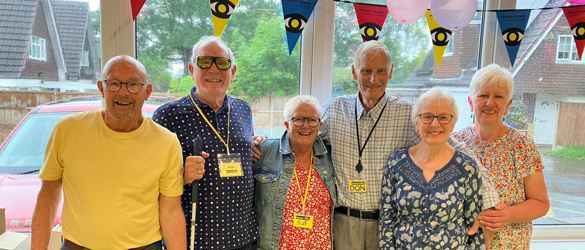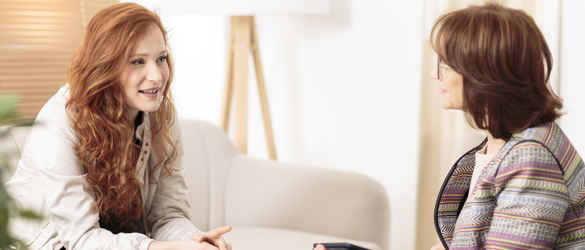"I see the floating heads of toothless, grinning medieval men"
Posted: Saturday 16 November 2024
Visions of medieval figures with open mouths and toothless grins have been some of the vivid images that Sheila started to see following her diagnosis of age-related macular degeneration (AMD).
Sheila, 87, was diagnosed with dry AMD 17 years ago and in the last few years she has begun to see things which aren’t really there all because of her sight loss.
This condition is known as Charles Bonnet Syndrome (CBS). Up to half of all people with macular degeneration are thought to have these hallucinations at some point. But, as many are not aware of CBS until they experience it, it can frightening.
Sheila was not made aware of the condition when she was diagnosed. From seeing floating heads to patterns, she has been keen to highlight her own experiences of CBS to mark Charles Bonnet Syndrome Awareness Day (Saturday, 16 November 2024).
She said: “They are a bit like a dream in that they happen and then they drift away. I can't tell you what triggers them, there appears to be no regularity whatsoever and I’ve seen different patterns and heads, so things which are completely unrelated.
“It’s usually the head and shoulders, sort of medieval looking. Usually ugly men with big noses, open mouths and no teeth and then they morph into something else. More recently I saw a group of ladies’ heads. It’s very confusing, how do you explain it? It’s bizarre!”
Talking about Charles Bonnet Syndrome
She has found a lot of comfort talking about the hallucinations with her local support group, where she hopes passing on the knowledge and understanding of CBS will put other people at ease should they start to see things which aren’t real.
She said: “It’s such a normal part of sight loss but the group are very amused when I describe what I have seen. From talking about it at the group I discovered that two more people there have it as well. People in my group who don't have it just think it's rather amusing but because we have talked about it, if it happens to them then maybe they won’t be shocked if it starts happening to them.”
Sheila, a retired social worker, has now developed sight loss in both eyes, which has begun to add extra challenges to her life.
She said: “I realise you don’t go entirely blind with my macular condition, but you do lose your central vision, and I didn’t take that seriously until I started having my follow up hospital appointments after my diagnosis. I realised how serious this is, experiencing that loss and it is like any kind of bereavement. I thought ‘why did it happen to me?’
“So you go through that process of grief and loss, of not recognising people’s faces and struggling to cross the road safely. When I was diagnosed in my right eye too I thought about the thousands books I still wanted to read. Reading now has become an enormous difficulty. I can use a computer but print is quite tedious.”
Feeling secure through support from others
But Sheila says she has now “come to terms with sight loss”, helped by her involvement with the support group in Guildford.
She said: “It’s the fact that I'm not alone, that we're all in it together. We're all very different, but we're all in it together because of our sight loss conditions. We have this particular condition that makes life difficult but sometimes we can have a laugh about it and it makes you feel you feel more secure.”
Find your local support group
Our support groups are for people of working age and older, and provide information, support and friendship to people with macular disease and sight loss. Find your local support group today.
Other support services
We provide free information and support to those with macular disease, along with their family and friends, to help people keep their independence.




